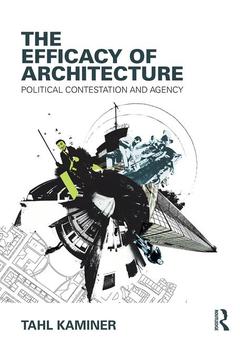The Efficacy of Architecture Political Contestation and Agency
Auteur : Kaminer Tahl

A significant ideological transition has taken place in the discipline of architecture in the last few years. Originating in a displeasure with the ?starchitecture? system and the focus on aesthetic innovation, a growing number of architects, emboldened by the 2007?8 economic crisis, have staged a rebellion against the dominant mode of architectural production. Against a ?disinterested? position emulating high art, they have advocated political engagement, citizen participation and the right to the city. Against the fascination with the rarefied architectural object, they have promoted an interest in everyday life, play, self-build and personalization.
At the centre of this rebellion is the call for architecture to (re-)assume its social and political role in society. The Efficacy of Architecture supports the return of architecture to politics by interrogating theories, practices and instances that claim or evidence architectural agency. It studies the political theories animating the architects, revisits the emergence of reformist architecture in the late nineteenth century, and brings to the fore the relation of spatial organization to social forms. In the process, a clearer picture emerges of the agency of architecture, of the threats to as well as potentials for meaningful societal transformation through architectural design.
Introduction: The Return to Politics. Part 1: Critique, Reformism and Co-Optation Critique and Change. The Ascent of Reformism. The Integration of Critique Part 2: The Architecture of Radical Democracy The Post-Fordist City. Theories of Participation. Theories of Contestation. Praxis Part 3: Languages of Architecture The Political as the Symbolic. Urban Form. ‘Vulgar’ Architecture, ‘Vulgar’ Politics. Notes. Bibliography. Index.
Tahl Kaminer is Senior Lecturer in Architectural Design and Theory at the University of Edinburgh, UK. He co-founded and edited the journal Footprint. His publications include the monograph Architecture, Crisis and Resuscitation (Routledge, 2011) and the co-edited anthologies Houses in Transformation (2008), Urban Asymmetries (2011) and Critical Tools (2012).
Date de parution : 12-2016
17.4x24.6 cm
Date de parution : 12-2016
17.4x24.6 cm
Thèmes de The Efficacy of Architecture :
Mots-clés :
Contemporary Society; Critique; Vice Versa; Aesthetics; Empty Signier; Efficacy; Post-war; Urbanism; Participatory Architecture; Political; Civil Society; Architecture; Equivalential Chains; History; Architectural Association; Theory; Deliberative Democracy; Agency; Palais De Tokyo; Reform; Participatory Movement; Spatial Practitioners; Common Language; Democratic Decit; Ludwig Hilberseimer; Centro Direzionale; Disengages; Radical Democracy; Cedric Price; Le Corbusier; Reyner Banham; Park Hill; Benhabib 1996b; Chantal Moue; Art Critic Claire Bishop



